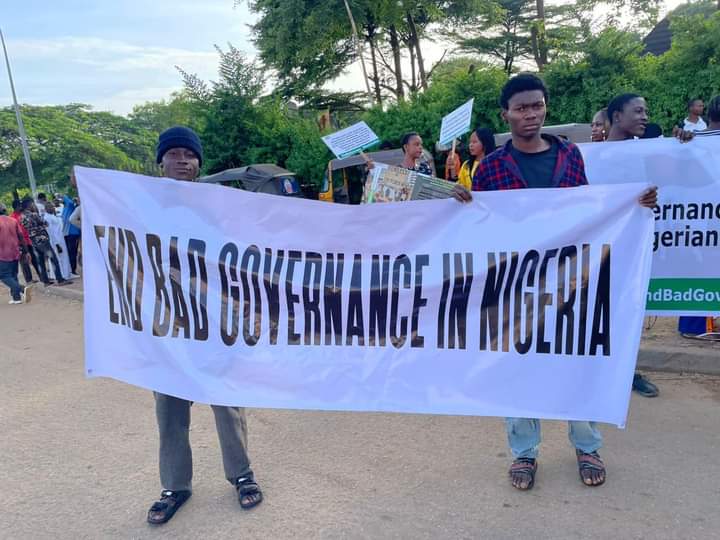As Nigeria celebrates its 64th independence anniversary, citizens are taking to the streets to demand an end to bad governance, soaring living costs, and economic hardship.
Frustrated by the scrapping of fuel subsidies in 2023 and rampant mismanagement, Nigerians are staging #EndBadGovernance demonstrations to voice their discontent.
Amid the protests, President Bola Tinubu has urged patience, assuring the public that ongoing reforms will bring about positive changes. However, the demonstrators remain resolute in their demands for immediate action to alleviate the economic burden and insecurity gripping the nation.
The protests, reminiscent of similar demonstrations in August, have gained momentum and drawn attention not only for their domestic significance but also for the international dynamics at play. While some protesters have been seen waving Russian flags, fueled partially by anti-Western sentiments, Russia has vehemently denied any involvement in the unrest.
The issue of fuel subsidies, a central point of contention, has instigated widespread discontent, leading to a groundswell of public outcry. The removal of these subsidies has directly impacted the cost of living for many Nigerians, exacerbating economic challenges and prompting citizens to demand their reinstatement.
Moreover, the protests underscore a broader dissatisfaction with governance and a call for increased accountability and transparency. The rallying cry for change encompasses a range of grievances, including economic hardship, insecurity, and mismanagement, reflecting a deep-seated desire for a more equitable and just society.
As the protests continue to unfold, the nation stands at a critical juncture, with the voices of its citizens resounding in a unified call for change.
The outcome of these demonstrations will undoubtedly shape the trajectory of Nigeria’s future, serving as a potent reminder of the power of collective action and the demand for responsive and responsible governance.




